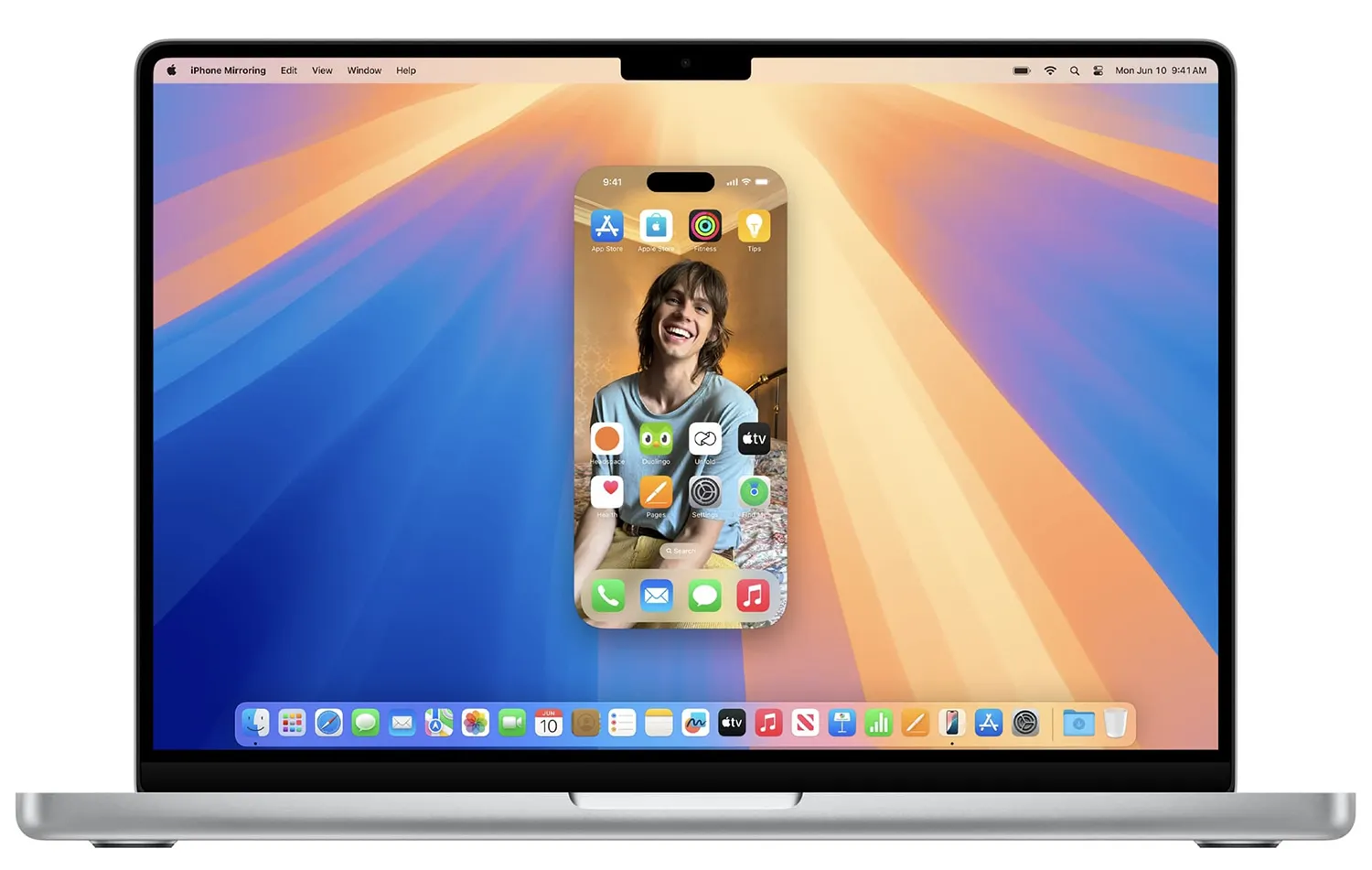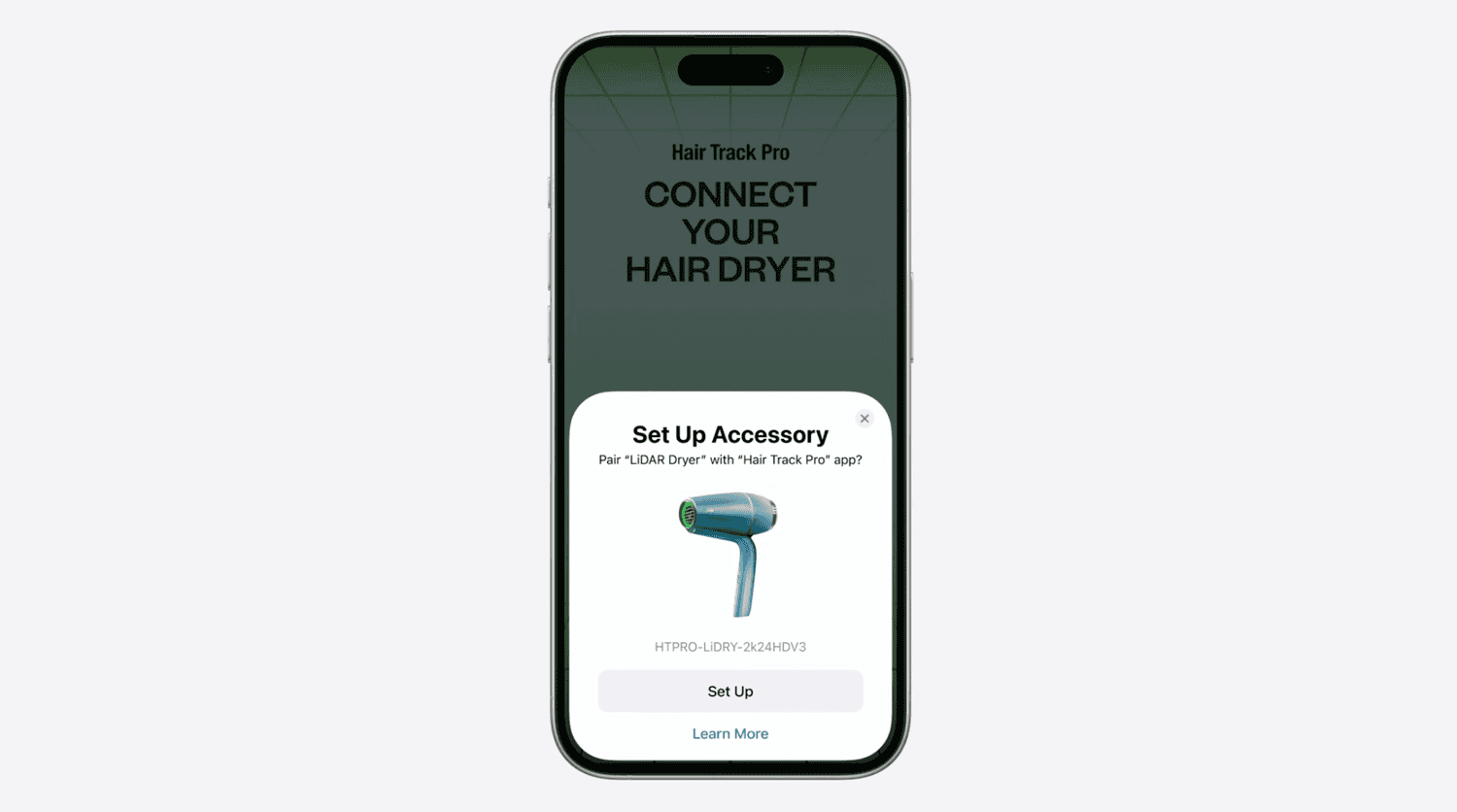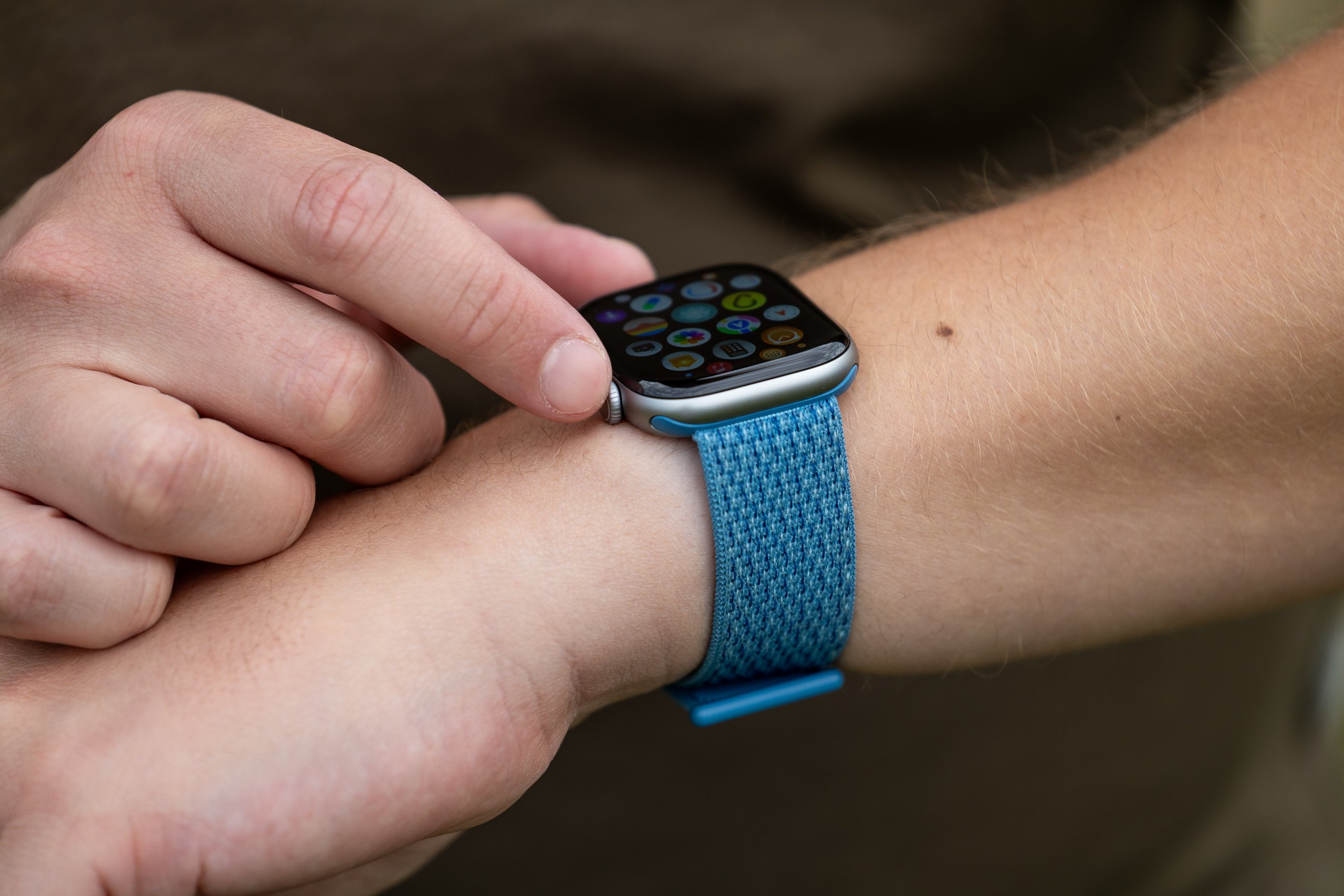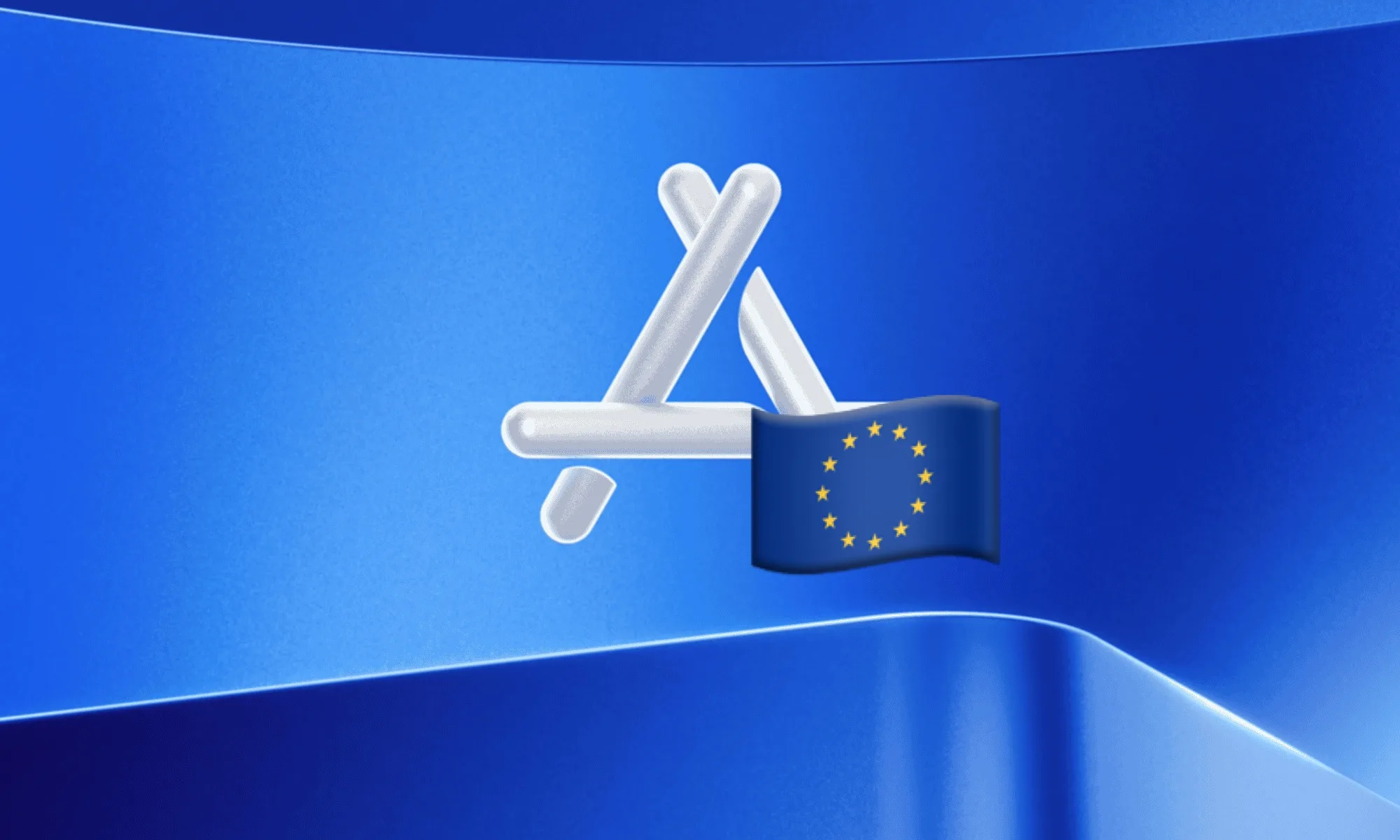
Apple keihard over Europese DMA-wet: ‘Het werkt niet’ (update met reactie EU)
Al sinds de Digital Markets Act in de Europese Unie van start ging, ligt Apple overhoop met de EU. Het is vooral Apple dat door de regelgeving getroffen wordt (zegt Apple zelf), met als gevolg dat functies later of niet in Europa beschikbaar komen, er allerlei wijzigingen aan het besturingssysteem gedaan moeten worden en dat het zorgt voor privacygevaren voor gebruikers. Nu de regelgeving een jaar actief is, is het tijd voor een evaluatie. En Apple was hierin nog nooit zo stellig als nu.
Apple fileert DMA-regelgeving
Als eerste benadrukt Apple de functies die de afgelopen jaren geïntroduceerd zijn, maar vanwege de DMA-regelgeving niet voor Europese gebruikers beschikbaar zijn. Daarbij noemen ze vier functies: live vertalingen op AirPods, iPhone Mirroring, bezochte plaatsen in Kaarten (nieuw in iOS 26) en leren van je voorkeursroutes (ook iOS 26). Voor de live vertalingen wordt Apple Intelligence gebruikt, doordat de vertalingen lokaal op je apparaat verwerkt worden. In verband met privacy weet Apple dus niet wat er gezegd wordt. Het levert diverse uitdagingen op om dit voor andere apparaten dan AirPods mogelijk te maken. Apple zegt niet dat dit onmogelijk is, maar het kost nu eenmaal veel tijd.
iPhone Mirroring werd al een jaar geleden uitgebracht, maar is nog altijd niet in Europa beschikbaar. Daarover zegt Apple dat het team nog steeds geen manier gevonden heeft om dit mogelijk te maken op niet-Apple-apparaten, zonder dat gevoelige informatie van je iPhone als meldingen blootgesteld wordt. Als gevolg daarvan is de functie nog steeds niet beschikbaar in Europa.
Wat betreft de twee nieuwe Kaarten-functies, wordt locatiedata lokaal opgeslagen op je toestel, waarna de Kaarten-app daarvan leert. Ook hier is het Apple nog niet gelukt om een manier te vinden waarop deze data veilig beschikbaar komt voor andere ontwikkelaars, zonder dat de locatie van gebruikers blootgesteld wordt.
Apple zegt talloze suggesties te hebben gedaan aan de EU, maar die worden telkens afgeschoten. Apple benadrukt dat het illegaal is om deze functies nu naar Europese gebruikers te brengen, zonder dit mogelijk te maken voor andere producten. Doet Apple dat wel, dan volgen hoge boetes.
Risico’s van alternatieve app stores
Apple benadrukt ook nog de risico’s van het toestaan van alternatieve app stores. Hoewel Apple inmiddels aan de eisen voldoet, zorgt het voor meer risico bij het downloaden van apps, is de ervaring minder intuïtief en kunnen gebruikers blootgesteld worden aan ongeschikte apps. Als voorbeeld noemt Apple Hot Tub, de eerste porno-app voor iPhone die via de alternatieve app store AltStore beschikbaar is.
Andere bedrijven hebben ook bij de EU aangeklopt met het verzoek om meer data te krijgen van iPhone-gebruikers. De DMA-regelgeving stelt andere bedrijven namelijk in staat om dergelijke verzoeken te doen, waar dan zogenaamde poortwachters (zoals Apple) op moeten reageren. Zo liggen er verzoeken om de inhoud van meldingen vrij te geven en een historie van verbonden wifinetwerken in te zien. Apple zegt dat het aan de EU uitgelegd heeft wat voor privacyrisico’s dit met zich mee brengt, maar tot op de dag van vandaag zijn deze verzoeken van andere bedrijven nog niet door de EU geweigerd.
Apple’s conclusie: DMA werkt niet
Apple is in haar conclusie behoorlijk duidelijk: de DMA-regelgeving werkt niet en heeft zelfs het tegenovergestelde effect als waar de regelgeving in eerste instantie voor bedoeld is. Gebruikers hebben namelijk minder keuze gekregen, omdat EU-gebruikers niet dezelfde opties en mogelijkheden hebben als gebruikers in de rest van de wereld. Hun keuze om de nieuwste Apple-functies en technologieën te gebruiken, vervalt.
Ook is er juist minder differentiatie: doordat alternatieve app stores mogelijk worden, lijkt iOS meer op Android. Je kunt dus niet meer als gebruiker bewust kiezen voor een meer gesloten systeem. Tot slot zegt Apple dat er sprake is van oneerlijke competitie. Veel DMA-regels gelden alleen voor Apple (en Google), maar bijvoorbeeld niet voor Samsung. En dat terwijl Samsung de marktleider in Europa is als het gaat om smartphones. Een kanttekening is natuurlijk wel dat Apple ook de maker van het besturingssysteem is en dat dat in het geval van Samsung niet zo is.
Apple zegt dat ze niet elk probleem dat door de DMA veroorzaakt wordt kunnen oplossen. Apple roept dan ook op om een groot deel van de regelgeving terug te draaien. Ondertussen zegt Apple er alles aan te doen om Europese gebruikers de beste ervaring te geven. Maar waarschuwt tegelijkertijd dat er mogelijk dingen gaan veranderen.
Nieuwe producten mogelijk later (of helemaal niet)
Apple zegt dat de DMA-regels Apple ertoe dwingt om “zorgwekkende wijzigingen aan te brengen” in de manier waarop Apple-producten ontworpen zijn en geleverd worden aan Europese gebruikers. Hoewel ze daarmee niet expliciet zeggen dat producten helemaal niet uitgebracht worden, kan dat uiteindelijk wel het gevolg zijn. Het is ook nog niet zo dat Apple zegt dat ze helemaal stoppen met leveren van producten in Europa, maar dat de regels er wel voor zorgen dat het veel moeilijker gemaakt wordt om zaken te doen in de EU. En dat kan wel degelijk gevolgen hebben voor de toekomst.
Lees hier het volledige (Engelstalige) statement van Apple
September 24, 2025
APPLE STATEMENT
The Digital Markets Act’s impacts on EU users
At Apple, we’ve always focused on creating technology that empowers people and enriches their lives. We design our products to be intuitive and simple to use, to work seamlessly together, and to protect people’s privacy and security. Since we launched the App Store in 2008, we’ve also worked with developers to create one of the most vibrant, safe, and successful digital marketplaces in the world.
Millions of people in Europe choose Apple products because they love and trust them. Developers choose them to reach users globally and build thriving businesses. It’s a model that works — in Europe and around the world.
But the Digital Markets Act (DMA) is forcing us to make some concerning changes to how we design and deliver Apple products to our users in Europe.
What Is the Digital Markets Act?
The Digital Markets Act is a regulation the European Union introduced in 2022 to reshape how certain technology companies design their products. The DMA includes a long list of rules, but the way those rules are implemented looks very different from company to company.
For Apple, the DMA is impacting many parts of our EU users’ experience on our products — from how they download apps and make app payments, to how their Apple products work together.
Over the past few months, the European Commission — which is responsible for the DMA — has asked for more feedback from companies and EU citizens about the law’s effects. So we wanted to update Apple users in the EU on the changes they’ve started to see, and what they can expect in the future.
The DMA’s Impacts on Apple Users in the EU
Feature Delays
The DMA requires Apple to make certain features work on non-Apple products and apps before we can share them with our users. Unfortunately, that requires a lot of engineering work, and it’s caused us to delay some new features in the EU:
- Live Translation with AirPods uses Apple Intelligence to let Apple users communicate across languages. Bringing a sophisticated feature like this to other devices creates challenges that take time to solve. For example, we designed Live Translation so that our users’ conversations stay private — they’re processed on device and are never accessible to Apple — and our teams are doing additional engineering work to make sure they won’t be exposed to other companies or developers either.
- iPhone Mirroring lets our users see and interact with their iPhone from their Mac, so they can seamlessly check their notifications, or drag and drop photos between devices. Our teams still have not found a secure way to bring this feature to non-Apple devices without putting all the data on a user’s iPhone at risk. And as a result, we have not been able to bring the feature to the EU.
- We’ve also had to delay useful features like Visited Places and Preferred Routes on Maps, which store location data on device so it’s only accessible to the user. So far, our teams haven’t found a way to share these capabilities with other developers without exposing our users’ locations — something we are not willing to do.
We’ve suggested changes to these features that would protect our users’ data, but so far, the European Commission has rejected our proposals. And according to the European Commission, under the DMA, it’s illegal for us to share these features with Apple users until we bring them to other companies’ products. If we shared them any sooner, we’d be fined and potentially forced to stop shipping our products in the EU.
We want our users in Europe to enjoy the same innovations at the same time as everyone else, and we’re fighting to make that possible — even when the DMA slows us down. But the DMA means the list of delayed features in the EU will probably get longer. And our EU users’ experience on Apple products will fall further behind.
A Riskier, Less Intuitive App Experience
We’ve always run the App Store to be a safe and trusted marketplace for our users, and to create an incredible business opportunity for developers. Due to the DMA, our EU users are experiencing the following impacts:
- More risks when downloading apps and making payments: The DMA requires Apple to allow sideloading, other app marketplaces, and alternative payment systems — even if they don’t meet the same high privacy and security standards as the App Store. On other mobile platforms, users face scams spread through fake banking apps, malware disguised as games, and third-party payment systems that overcharge them with no way to get their money back. The DMA’s requirements make it more likely our EU users will be exposed to similar risks.
- A less intuitive experience: Instead of one trusted place to get apps, EU users now face multiple marketplaces, each with their own design, rules, and review standards. On other mobile platforms, that leads to harmful look-alike apps that slip through with fewer checks, and marketplaces where users don’t know where to turn if something goes wrong. Apple users in the EU are now more likely to face those same risks. And it’ll only become harder for our EU users to know where an app came from, who’s responsible for it, and what protections apply if problems arise.
- New exposure to harmful apps: For the first time, pornography apps are available on iPhone from other marketplaces — apps we’ve never allowed on the App Store because of the risks they create, especially for children. That includes Hot Tub, a pornography app that was announced by AltStore earlier this year. The DMA has also brought gambling apps to iPhone in regions where they are prohibited by law.
We built the App Store to be a central, trusted place for our users where every app is reviewed, every developer follows the same rules, and parents have tools to protect their children. We’re still fighting to protect that quality experience our users expect, but the DMA has forced changes to that model. And that’s creating more complexity and more risks for our EU users.
New Privacy and Security Threats
The DMA also lets other companies request access to user data and core technologies of Apple products. Apple is required to meet almost every request, even if they create serious risks for our users.
So far, companies have submitted requests for some of the most sensitive data on a user’s iPhone. The most concerning include:
- The complete content of a user’s notifications: This data includes the content of a user’s messages, emails, medical alerts, and any other notifications a user receives. And it would reveal data to other companies that currently, even Apple can’t access.
- The full history of Wi-Fi networks a user has joined: Wi-Fi history can reveal sensitive information about a user’s location and activities. For instance, companies can use it to track whether you’ve visited a certain hospital, hotel, fertility clinic, or courthouse.
Large companies continue to submit new requests to collect even more data — putting our EU users at much higher risk of surveillance and tracking. Our teams have explained these risks to the European Commission, but so far, they haven’t accepted privacy and security concerns as valid reasons to turn a request down.
Is the DMA Achieving Its Goals?
Regulators claimed the DMA would promote competition and give European consumers more choices. But the law is not living up to those promises. In fact, it’s having some of the opposite effects:
- Fewer choices: When features are delayed or unavailable, EU users don’t get the same options as users in the rest of the world. They lose the choice to use Apple’s latest technologies, and their devices fall further behind.
- Less differentiation: By forcing Apple to build features and technologies for non-Apple products, the DMA is making the options available to European consumers more similar. For instance, the changes to app marketplaces are making iOS look more like Android — and that reduces choice.
- Unfair competition: The DMA’s rules only apply to Apple, even though Samsung is the smartphone market leader in Europe, and Chinese companies are growing fast. Apple has led the way in building a unique, innovative ecosystem that others have copied — to the benefit of users everywhere. But instead of rewarding that innovation, the DMA singles Apple out while leaving our competitors free to continue as they always have.
Under the DMA, the European Commission’s interpretation of the rules is constantly changing. And that makes it nearly impossible for companies to know how to comply.
When there are disagreements about the DMA’s requirements, companies have to make the European Commission’s changes before the courts weigh in — which can takes months or years — even if that does irreversible harm to users. And the penalties for failing to comply are totally arbitrary. They’re applied unevenly, and they’re designed to punish companies instead of promoting competition.
Over time, it’s become clear that the DMA isn’t helping markets. It’s making it harder to do business in Europe.
Apple’s Perspective on the DMA
It’s been more than a year since the Digital Markets Act was implemented. Over that time, it’s become clear that the DMA is leading to a worse experience for Apple users in the EU. It’s exposing them to new risks, and disrupting the simple, seamless way their Apple products work together. And as new technologies come out, our European users’ Apple products will only fall further behind.
The DMA also isn’t helping European markets. Instead of competing by innovating, already successful companies are twisting the law to suit their own agendas — to collect more data from EU citizens, or to get Apple’s technology for free.
Despite our concerns with the DMA, teams across Apple are spending thousands of hours to bring new features to the European Union while meeting the law’s requirements. But it’s become clear that we can’t solve every problem the DMA creates.
That’s why we’re urging regulators to take a closer look at how the law is affecting the EU citizens who use Apple products every day. We believe our users in Europe deserve the best experience on our technology, at the same standard we provide in the rest of the world — and that’s what we’ll keep fighting to deliver.








19 reacties
Henk HCG Funk
Tja, heb altijd wel een beetje moeite de grote techbedrijven te geloven als ze jammeren over regelgeving.
Ga eerst eens fatsoenlijk belasting betalen.
Leo
Ja echt, helemaal eens
Yasin Kılıç
Ondertussen kan google wel nieuwe functies uitbrengen naar EU.
Bart
Aple maakt prima apparaten en services, maar op het vlak van regelgeving en privacy hebben ze nog een hoop te leren.
Kaas
Ja, en een blok goud op tafel gooien zoals bij Trump werkt niet in Europa.
Maurice
Ik snap dat iedereen zich aan wet- en regelgeving moet houden.
Maar ik ben zelf als consument het getreiter van de EU meer dan zat en ben ook fel tegenstander van de DMA en AVG wetten.
Ik kies bewust voor een poortwachter als Apple en als ik een opengebroken systeem wil en zelf mijn app winkel wil bepalen, dan had ik een decennia geleden wel gekozen voor Android.
Daarnaast heb ze ook nog de arrogantie techbedrijven bepaalde technologieën te verplichten (USB-C).
Dus ik hoop dat deze (vermoedelijke)bluf wat uithaald.
Maar zo niet, dan hoop ik ook dat ze de ballen hebben om door te zetten met deze dreiging.
Ik kan net zo goed toekomstige producten aanschaffen via importeren.
Maar zoals ze in het Engels zeggen: it’s probably a pipe dream.
Harald
Tja, als je gewend bent om met een zak geld je zin te krijgen, begrijp ik dat je als Apple zijnde niet blij bent met de EU. In de USA betaal je namelijk gewoon, onder het mom van steunen van de partij kas, de zittende regering. En die geven daar een weder dienst voor. Met als gevolg dat parijen als Meta, Google en Microsoft de dienst uit maken. Om maar van meneer Musk te zwijgen. Welke iedere instantie die de bedrijven X, space X en Tesla dwars zat de nek om draait.
Maar blijkbaar willen sommigen dat in de EU ook. Die personen denken dat deze grote bedrijven het beste met de consument voor hebben. Dat een bedrijf als META of Google netjes met persoonsgegevens om gaan. Om je eigen bewoordingen te blijven: droom lekker verder.
max
Waar nooit een oplossing voor gevonden zal worden is het volgende. Apple vindt van zichzelf dat zij als enige kan beoordelen wanneer de veiligheid van Apple apparaten in gevaar komt. Als dan door een buitenstaander gevraagd of geeist wordt om dat transparant aan te tonen krijg je als antwoord van Apple: dan kan niet want dat tast de veiligheid van onze producten aan. Het kan niet, omdat het niet kan.
Victor
Ik zie dat de EU al meermaals gereageerd heeft.
Volgens mij ligt de waarheid/oplossing in het midden. De EU kan zich meer bezig gaan houden met zaken van echt belang. Men is daar blijkbaar opzoek naar een financier van deze geld verslindende club. “koptelefoons van andere merken moeten dezelfde beleving hebben op een iPhone als Apple’s koptelefoons” Hoezo???
Er zijn toch veel grotere (veiligheid) issues om wat aan te doen: Meta, cookies, TikTok, Snapchat, fake nieuws enz.
Paul de Bruijn
Vooralsnog geloof ik Apple hierin. Zij hebben een ‘gesloten’ systeem en het werkt altijd, waarbij je veiligheid geborgd is. Als leveranciers meer gegevens van gebruikers willen, wie zegt dat ik dat als gebruiker wil geven? Vervolgens heb ik dan ook vrede met het feit dat die app dan niet naar de iPhone komt!
Danny
Die boekhouder cook weg wezen gaan we wel importeren hebben jou niet nodig cook
puccini
Apple moet niet zo mekkeren, ze willen gewoon niet, dat gaat ze namelijk geld kosten
En de Europese DMA wet is er alleen om ons als gebruikers te beschermen, dat vergeten een hoop mensen hier, ze denken niet na en zijn een beetje dom 😉
Jack
Beetje naief, en onterecht mensen beschuldigen van dom zijn en vergeetachtigheid…. De dma is er om ons te “beschermen” (zegt de eu) tegen alles buiten europa. Om vervolgens zelf te kunnen doen waartegen we “beschermd” moesten worden. Lees het artikel van Filip hieronder maar. De EU heeft ook nog “internetbelasting” geprobeerd, maar dat ligt nu in de ijskast. Voorlopig. Herinner je de sleepwet nog?
De eu denkt alleen aan de organisatie zelf, en zoeken nog een bron van inkomsten. Vergeet niet dat het een ongekozen groep is.
Nick
De enige die een beetje dom is hier, ben jij 😂😂
Eigenlijk niet een beetje, maar een ontzettend dom om te denken dat de EU regeltjes zoals DMA zijn om de gebruiker te beschermen 😆😆😆 precies wat ze willen, de schapen geloven het nog ook…
Het dient alleen maar om de EU kas te spekken! Lees je eens ofzo… is maar een tip…
Filip
Waar velen niet bij stilstaan is dat Europa privacy waaronder E2EE in de kiem wil smoren. Als ICT en security specialist met meer dan 27 jaar ervaring breekt het koud zweet me uit mocht dit in oktober worden goedgekeurd. Voor wie graag meer hierover leest: https://www.techradar.com/computing/cyber-security/the-eu-could-be-scanning-your-chats-by-october-2025-heres-everything-we-know.
Apple is misschien één van de grote techbedrijven maar in tegenstelling tot vele anderen dragen ze security en privacy hoog in het vaandel.
Filip
Waar velen niet bij stilstaan is dat Europa privacy waaronder E2EE in de kiem wil smoren. Als ICT en security specialist met meer dan 27 jaar ervaring breekt het koud zweet me uit mocht dit in oktober worden goedgekeurd.
Apple is misschien één van de grote techbedrijven maar in tegenstelling tot vele anderen dragen ze security en privacy hoog in het vaandel.
Leo
Apple pronkt in Europa als privacy-heilige, maar in China leverden ze hun ziel in bij de overheid. Alle iCloud-data van Chinese gebruikers staat op servers van staatsbedrijven, mét de encryptiesleutels ernaast – Peking kijkt dus gewoon mee.
Meer dan 60% van de populairste apps wereldwijd werd door Apple verwijderd uit de Chinese App Store: sociale media als WhatsApp, Instagram, Facebook, Twitter en Telegram, álle VPN’s, meer dan 600 nieuwsapps én zelfs religieuze apps zoals Bijbels, Korans en Tibetaanse woordenboeken. Geen enkel techbedrijf boog dieper.
En terwijl Apple zich daar zo schaamteloos laat gebruiken, slikken Europese gebruikers braaf de marketingpraatjes over “privacy as a human right”. Apple strooit zand in hun ogen – en ze klappen er nog voor ook.
Gert
Misschien daarom dat Apple in Europa zo van leer trekt. Redden wat er nog te redden valt.
Ik vind dat het qua regelgeving hier in een rechte weg dezelfde kant op aan het gaan is zoals in China.
Je mag niet dit, je moet dat,…
Ik als consument kies bewust voor Apple materiaal vanwege het gesloten systeem. Dat garandeert me altijd een perfecte werking, klaar.
Mensen genoeg in mijn omgeving die dat niet ok vinden, dus gaan zij voor Android/Windows,…
Hier in België en bij uitbreiding Europa merk je op diverse vlakken dat er allerlei regeltjes en wetten gelanceerd worden waarvan men gerust kan zeggen dat dat beslist is door iemand achter een bureautje. Hij/zij weet totaal niet waarover ze het hebben en toch maar wetten maken.
Dat is al net zoals al die professoren op Facebook en andere sociale media. Het is net alsof dat soort lui wetten maken.
A3
Het voelt een beetje alsof Smith & Wesson loopt te klagen dat ze geen wapens aan EU burgers mogen verkopen.
Het is zo simpel de EU wenst een bepaalde privacy en dat heeft gevolgen voor de functionaliteit voor de gebruiker.
Van belang is dat het missen van een functionaliteit dan ook voor andere aanbieders van toepassing is.